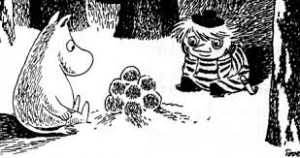I blogged a couple of weeks ago about books I’d recommend for writers focusing on their craft. This time I’m choosing books that are handy to have on a nearby shelf, particularly books that help spark new ideas, whether it’s at the overall story or plot level, or bits that can be used to adorn a story, the tiny embellishments like filagree or the lines in the Book of Kells, because we can always use new idea, little shocks, a kick in the head that turns the world askew in a way that lets us see it more clearly.
- The Penguin Dictionary of Symbols. Sometimes when I’m stuck on a story (or even a polish of a story), I like to look up things that appear in the story, using this dictionary. Looking at the lore behind a symbol can often help you use it effectively.
- Talk the Talk: The Slang of 65 American Subcultures by Luc Reid. I love this little book both as a way to spark ideas for stories or characters, but also creating touches of authenticity when ivoking subcultures like rock climbers, sky divers, and UFO believers.
- Visual Dictionary – I like my Macmillan Visual Dictionary, but there’s also plenty of others, like Merriam Webster’s. If you don’t know what a widget or boat part or architectural feature is called, this will have it. A great aid towards precision.
- Some book of poetry. It could be anything, Shakespeare to Ogden Nash. T.S. Eliot. Sylvia Plath or Emily Dickinson. Something densely poetic. It can be prose, but it has to be dense, poetry-drenched prose, like Djuna Barnes or James Joyce. Recently I’ve been employing Rumi. Use it several ways – to spark timed writings or stories or whatever, but I use it primarily for coming up with titles.
- People’s History of the United States by Howard Zinn. (Kindle version) This is a view of history from the left, and one that looks at a lot of moments that are not covered in the mainstream history books. Look here for interesting story ideas or historical details for period pieces.
- Booklife by Jeff VanderMeer. (Kindle version) A career guide that is worth looking at repeatedly. (Disclosure: I wrote the appendix on writing workshops, but there are much, much wiser voices throughout the book, particularly Jeff’s.
- A tarot deck. Yes, technically not a book, but certainly there’s been plenty of books written about them and these books tap into all sorts of archetypes.
- The White Goddess: A Historical Grammar of Poetic Myth, by Robert Graves. A rich source of European Mythology, Graves is both reading through or dipping into on an occasional basis, this can be another useful source of starting images, symbols, or even poetic titles. For similar books, look at Weston’s From Ritual To Romance or Frazer’s The Golden Bough.







